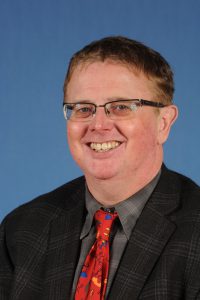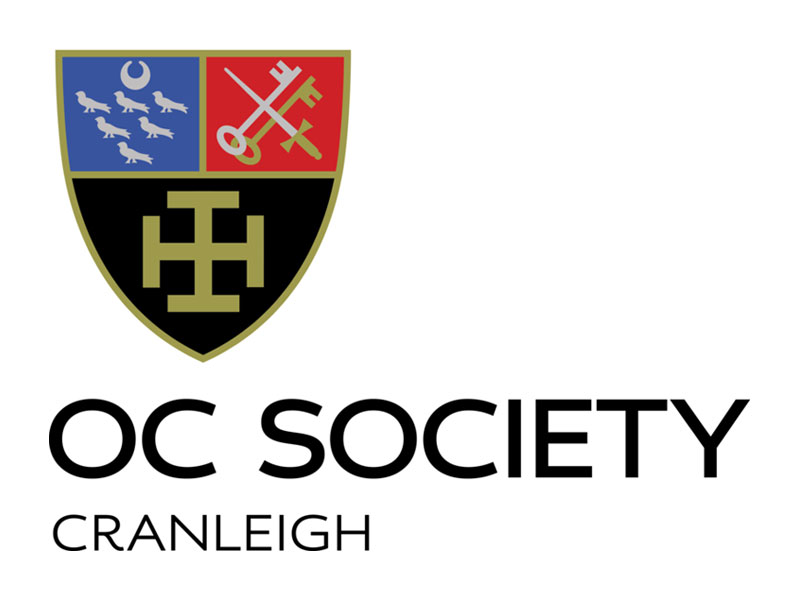 Peter Longshaw read English at Oxford and from his arrival at Cranleigh in 1979 to 1999, a dozen of his pupils applied to read English with his tutor, Francis Warner, every one gaining an Oxford place. PJL was soon promoted to Assistant Housemaster of West but in 1989 moved to Head of English. A feature of his early career was theatre: Lucky in the Common Room Waiting for Godot led to the lead roles in three of the annual German plays, including Brecht’s Galileo, and co-directing two Dürrenmatt plays. This was also the period in which Peter arranged for Common Room to have a snooker table in the new building and he was regularly snooker and billiards champion. Through General Studies he ran a concert-going activity which introduced many Cranleighans to such works as ‘The Rite of Spring’ (seven times!) and he gave many talks and CD presentations for the School’s various music societies.
Peter Longshaw read English at Oxford and from his arrival at Cranleigh in 1979 to 1999, a dozen of his pupils applied to read English with his tutor, Francis Warner, every one gaining an Oxford place. PJL was soon promoted to Assistant Housemaster of West but in 1989 moved to Head of English. A feature of his early career was theatre: Lucky in the Common Room Waiting for Godot led to the lead roles in three of the annual German plays, including Brecht’s Galileo, and co-directing two Dürrenmatt plays. This was also the period in which Peter arranged for Common Room to have a snooker table in the new building and he was regularly snooker and billiards champion. Through General Studies he ran a concert-going activity which introduced many Cranleighans to such works as ‘The Rite of Spring’ (seven times!) and he gave many talks and CD presentations for the School’s various music societies.
Peter directed plays by Orton, Pinter and Beckett and arranged regular theatre trips for pupils. His time as Head of Department was characterised by evening and weekend events, such as three-day poetry festivals, through which he met the Old Cranleighan poet James Harpur who became an annual visitor when Peter taught his poetry for AS coursework. There were evenings of poetry and music with the baritone Graham Trew and charity poetry evenings, for one of which Peter memorised an hour of poetry including Eliot’s ‘The Waste Land’. He was especially committed to the department’s two weekly lectures for all its A Level pupils and was especially proud of being invited by Alan Megahey to take over the prestigious ‘Western Civilisation’ lectures: his own often focused on his special interests, such as James Joyce and Michael Tippett. Another Longshaw speciality is the composer-poet Ivor Gurney on whom he did some pioneering work during a schoolmaster fellowship at Liverpool University. As well as benefiting from lectures from Peter’s friends from RGS, Guildford, sixth formers took part in regular theatre workshops on Shakespeare. No poet himself, he nevertheless encouraged such now published writers as Patrick Marber and James Brookes. The latter was also one of his tutees and PJL took the pastoral side of his work very seriously. PJL talks of the crowning moment of his career being the 2014 wedding in Chapel of former pupils Charlotte Newman and James Brookes at which he was invited to read from his beloved Franklin’s Tale. His reputation as a Chaucer teacher led to annual invitations from the English Association to give seminars to A Level students from all over the country.
Peter ran the internal examinations and helped as ‘third man’ with the public examinations: the organisational skills needed for this paralleled those that produced eleven editions of The Cranleighan, and eighteen Cranleigh Matters, which also contained hundreds of his reviews of concerts and plays that also appeared on the website and in the local press. Peter’s time in the Chapel Choir (nearly 10 years) was ended by continued health problems (he clocked up two dozen operations over his career) and his wife’s serious illness. Even during this time Alexis (Associate Professor at the University of Law) made herself available to advise potential law degree students. In 1999 he introduced the now-established Wednesday afternoon programme of Community Service activities, himself running a gardening and litter-picking programme, but he especially relished the wider programme of Sixth Formers visiting the elderly, which ran five days a week.
Another constant was the Schools Challenge quiz, which he ran for 35 years but had to wait 33 years to become the question-master. He did, however, get to ask, as well as set, the questions (over 40,000 set, he reckons) in his role as regional organiser for South Central England. In retirement he hopes in due course to move to Oxford, where he and Alexis met 39 years ago, and to spend as much time as possible in his other favourite cities: Paris, New York, Berlin, Manchester, Chicago and London. Peter is especially pleased that an ex-pupil and tutee, Anthony Dunkley, is now a horse-racing journalist, and envisages many an evening studying form while finally listening to the several thousand unplayed CDs in his collection.
Paul Leggitt
